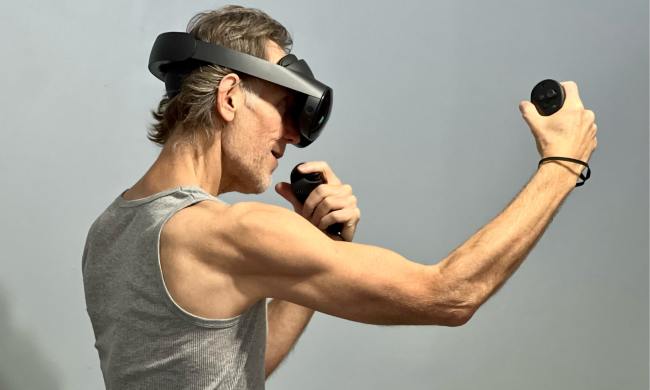The trademark description does not explicitly mention HoloLens, which is Microsoft’s product, designed to create high-definition holograms in the real world. However, the company has toyed with the idea of a virtual pet in the past.
During a keynote at the BUILD conference, a holographic dog named Fang was exhibited to the audience. Although there was not much speculation at the time, this new pending trademark is beginning to fuel virtual reality rumors.
The trademark itself was filed on May 20. Under the “Goods and Services” category, the description of the trademark reads, “Computer software; operating system software; virtual reality software; computer software, namely, software for setting up, operating, configuring, and controlling wearable hardware and wearable computer peripherals.”
If assumptions can be made on the term “HoloPet,” it seems like the virtual world of HoloLens users would not just include humans – it would have some of our furry friends, too. Furthermore, they would likely be a lot more interesting than the virtual pet toys that ruled the ‘90s.
Microsoft’s HoloLens is the company’s untethered, see-through holographic computer. With this technology, users can create high-definition holograms that are projected into the real world. HoloLens doesn’t have a screen or a mouse, but rather reacts to users’ gestures, gaze and voice.
At the moment, HoloLens is not available for purchase to mainstream consumers. An anonymous Microsoft employee says that it will cost “more than a game console (average price, $400)” when it hits the market, and that may not happen for several years.


